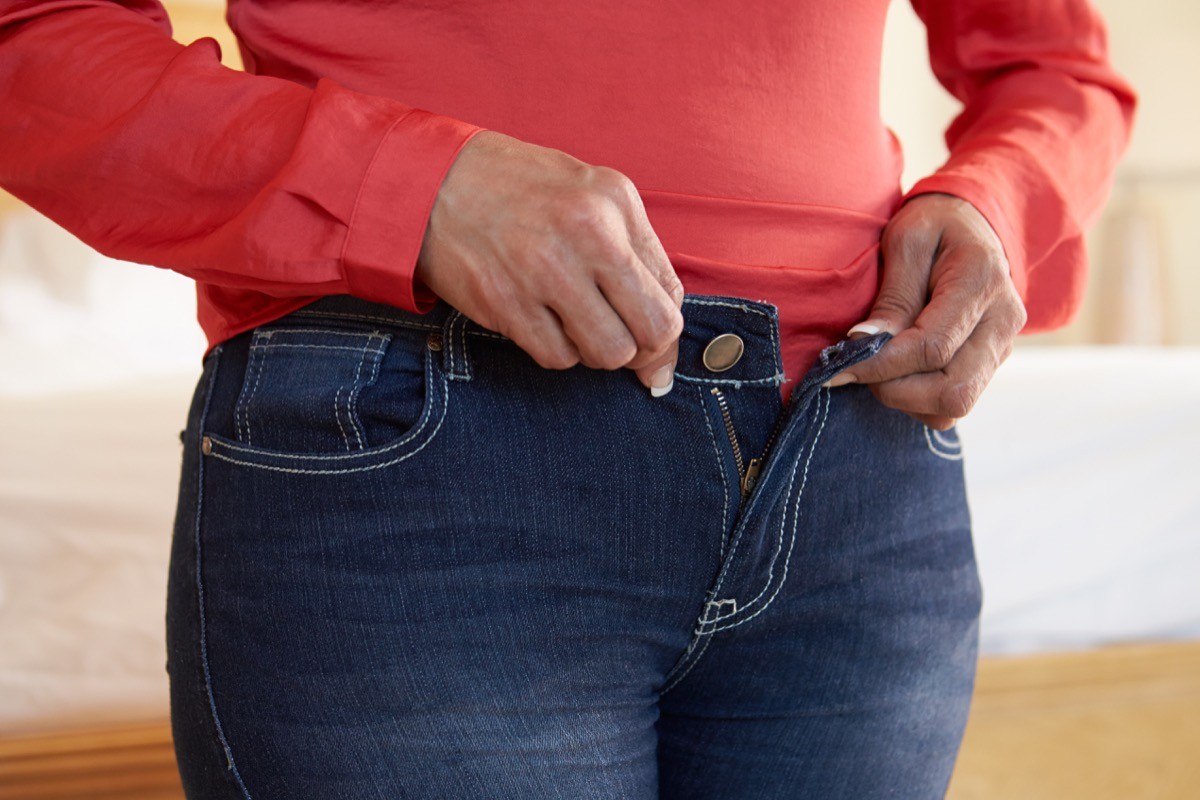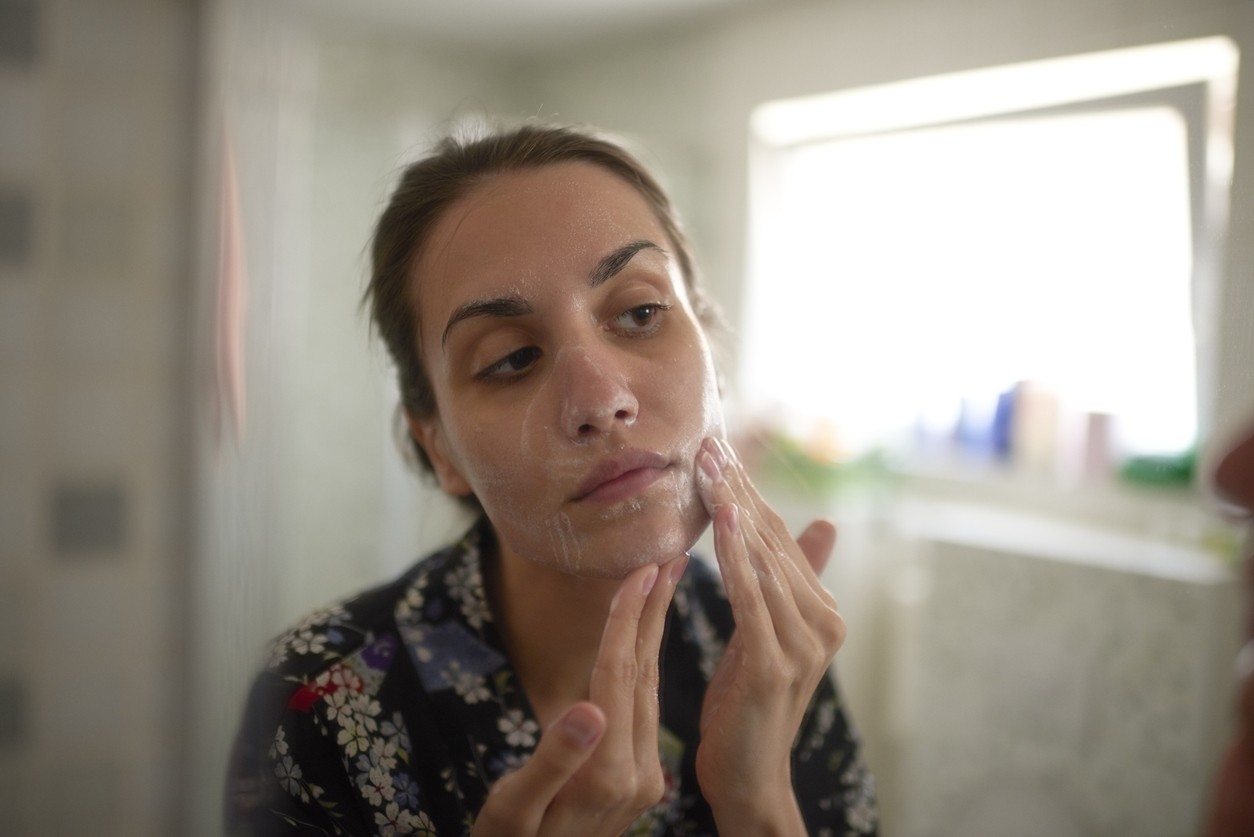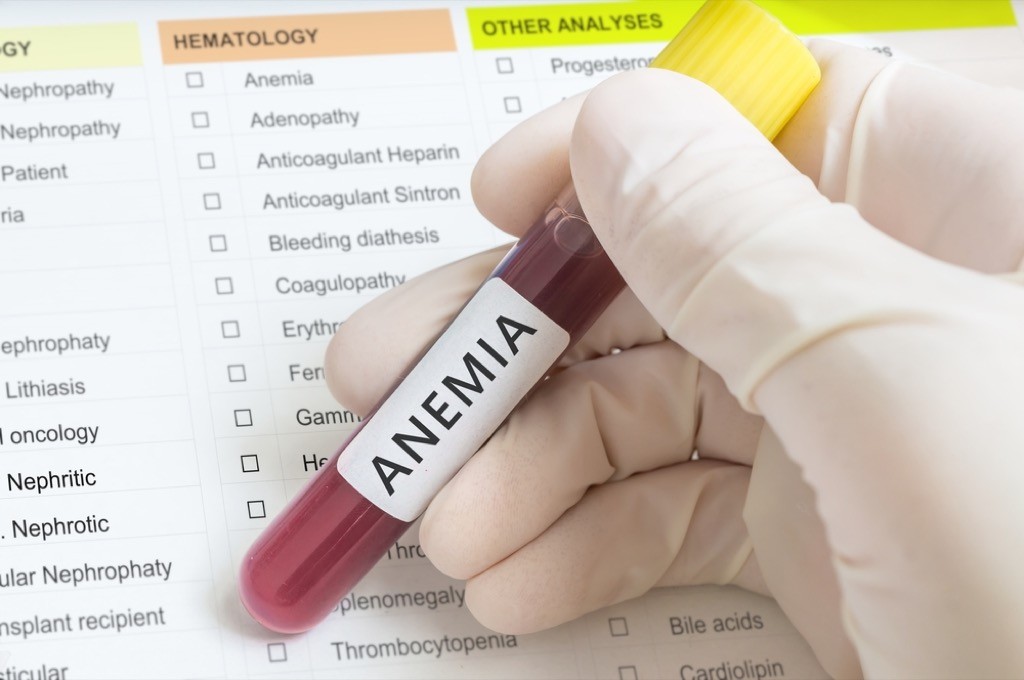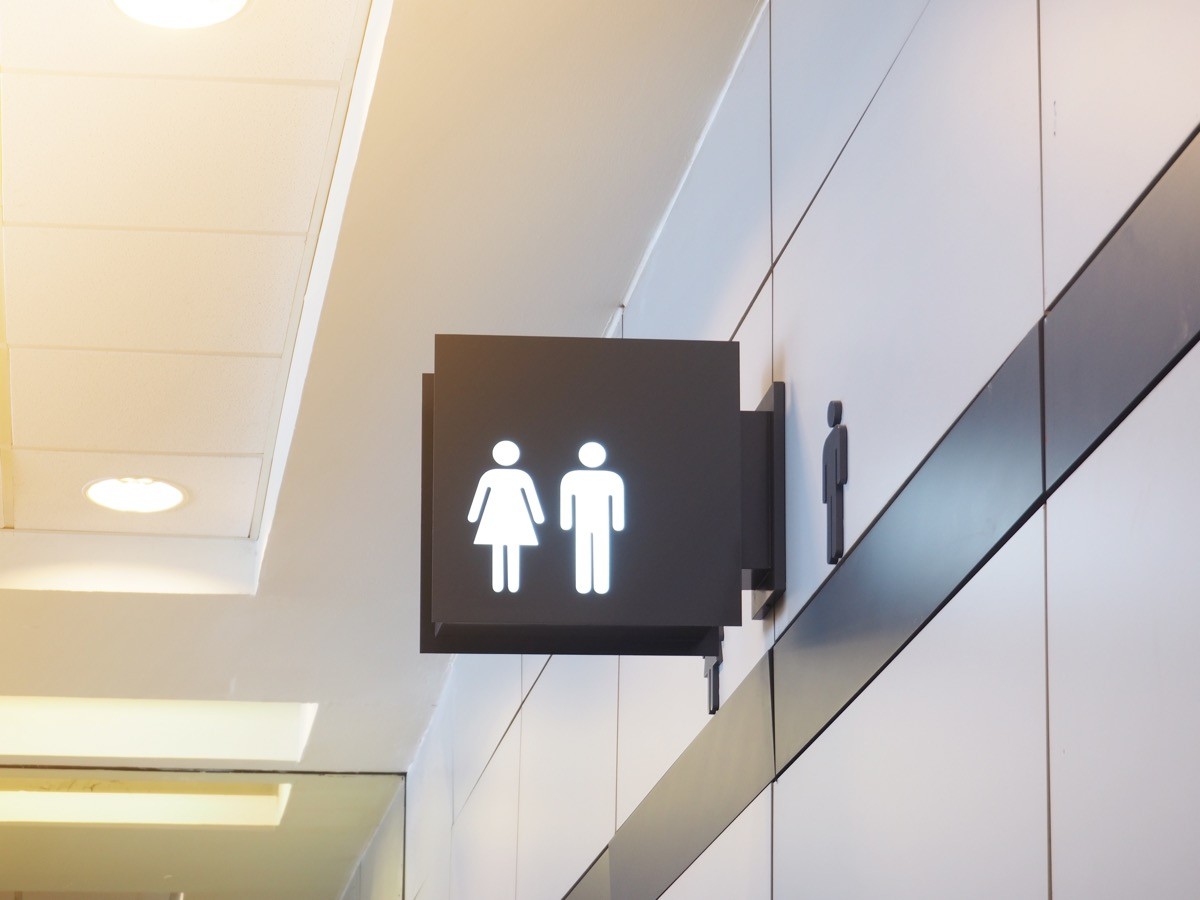10 Signs You’re Eating Too Much Cheese, According to Doctors

First, the good news: If you love cheese, as so many people do, there’s no reason to cut it out of your diet completely.
“Cheese can be a healthy part of any diet—it has many valuable nutrients, including calcium and protein,” says Lindsay Malone, MS, RDN, LD, an adjunct professor of nutrition at the School of Medicine at Case Western Reserve University. “The most nutrient-dense cheese will be from grazing animals that eat lots of green plants. Vitamins and minerals can be passed from the animal into milk, butter, cheese, and yogurt, and the fat profile contains more anti-inflammatory Omega-3 fats than animals eating a purely grain-based diet,” she says.
That said, dairy tolerance varies between individuals, and some people will notice the effects of eating too much, says Jennie Stanford, MD, FAAFP, DipABOM, an Obesity Medicine Physician and medical contributor for Drugwatch. “Furthermore, because dairy can cause an inflammatory response throughout the body, the signs and symptoms of too much dairy aren’t limited to only the commonly discussed gastrointestinal symptoms. Rather, too much dairy can cause inflammatory symptoms in other organ systems.”
According to Cleveland Clinic, people who follow a diet that’s otherwise low in saturated fat can safely eat 2 to 3 ounces of high-quality cheese per day, while people with heart health concerns or a high-fat diet may benefit from limiting their intake to one ounce of cheese or less. Additionally, you should pay attention to how eating cheese and other dairy makes you feel, keeping an eye out for the signs that you’re going overboard. Read on to learn the 10 red flags that could signal you’re eating too much cheese, according to doctors and dietitians.
RELATED: The Only Foods You Should Be Eating at Night, Doctor Says.
1
Joint pain and inflammation

You might not associate that pesky pain in your knee with your diet, but Stanford says that eating too much cheese or dairy can, in fact, have a notable effect on your joint health.
“Dairy (including cheese) can increase the activity of the immune system, making inflammatory hormones work in excess,” she explains. “This can cause joint pain and inflammation.”
2
High cholesterol levels

Your genetic makeup plays a primary role in determining your cholesterol levels, but your diet also has an effect. Cheese can drive up your cholesterol levels if you consume it in excess.
“Regularly eating high-fat dairy products like cheese may contribute to elevated cholesterol levels, especially LDL cholesterol, which is referred to as ‘bad’ cholesterol,” says Chris Mohr, PhD, RD, Fitness and Nutrition Advisor for Fortune Recommends Health. “Elevated LDL levels are linked to an increased risk of heart disease.”
3
Fatigue

Stanford says that there’s a surprising reason that eating too much cheese could leave you feeling tired and sluggish.
“Fatigue is common with chronic inflammation, so lower energy levels can occur with eating too much cheese. However, fatigue is a very non-specific marker, so consider a variety of possible causes,” she advises.
4
Gas or bloating

Gas and bloating can also signal that you’re consuming too much cheese.
“Usually, someone needs to be lactose intolerant to feel bloated and gassy after eating small amounts of cheese,” says Ashwin Sharma, MD, a Medical Communications Manager at Levity. “This is because they struggle to break down the lactose, which causes fatty acids and gasses to be released in the stomach.”
However, he notes that this is a relatively common side effect of eating too much cheese. “The body is not meant to eat so much of one thing, especially dairy. This can lead to uncomfortable symptoms such as feeling bloated and flatulence.”
RELATED: If You Want to Lose Weight, “Avoid These Foods Like the Plague,” Fitness Expert Says.
5
Unintended weight gain

Weight gain can also be a sign that you’re eating too much cheese—especially if the rest of your diet is healthy and balanced.
“Cheese is calorie-dense and high in fats. If you notice a quick increase in weight, particularly when you haven’t made other significant changes to your lifestyle, your cheese consumption might be causing this,” says Mohr.
He says that if this happens to you, it may be a good idea to reduce your portion sizes and how often you eat cheese. “Consider harder, more flavorful cheeses like Parmigiano Reggiano —you get more bang for your buck with a stronger flavor, so you can enjoy less,” the dietitian advises.
6
Skin breakouts

Acne can have a range of underlying causes, from hormonal shifts to using the wrong facial cleansers. Your diet could also instigate breakouts—especially if you tend to eat a lot of cheese or dairy.
“Skin problems and acne are often caused by inflammation, which may be directly attributed to too much cheese or dairy. Excess dairy may also increase the activity of sweat glands, which can cause acne as well,” says Stanford.
7
Iron deficiency anemia

Malone says that one subtle side effect of eating too much cheese is that some people may go on to develop iron deficiency anemia.
“Eating too much calcium can interfere with iron absorption. Signs of iron deficiency anemia include pale coloring, shortness of breath and fatigue,” she says.
8
Heartburn

If you commonly get heartburn—especially soon after eating cheese or dairy—this probably means it’s time to cut back.
“Cheese is rich in fat, and fatty foods tend to slow down digestion,” explains Sharma. “The lower esophageal sphincter (LES) is a muscle that acts as a valve between the esophageal and the stomach. Fatty foods like cheese can relax the LES, allowing stomach acid to escape back into the esophagus. This means the stomach produces more acid to break down the fat and can trigger acid reflux, leading to heartburn.”
RELATED: FDA Warns Common Soda Ingredient Is Toxic to Your Thyroid
9
Diarrhea or gastrointestinal distress

According to Sharma, since cheese is rich in fat, consuming large amounts can overwhelm the digestive system and cause bouts of diarrhea. “Fat stimulates the intestines, which can speed up digestion and cause loose stools,” he says.
The doctor notes that some people are more susceptible to experiencing diarrhea when they eat cheese, including those who are lactose intolerant or sensitive to the additives, preservatives, and artificial ingredients found in processed foods.
“However, everyone can experience this unfortunate symptom if they eat too much cheese,” Sharma warns.
10
Constipation

The opposite effect—not having regular soft bowel movements every day—can also occur as a result of eating too much cheese, says Malone. She explains that this can be due to the calcium or lactose content found in cheese, or, alternatively “the foods that you may not be eating (fiber rich fruits, vegetables, beans and whole grains) if you are eating too much cheese.”